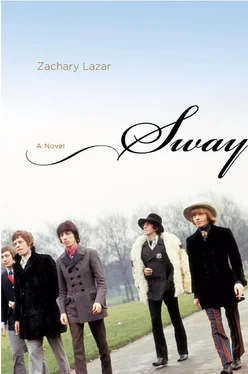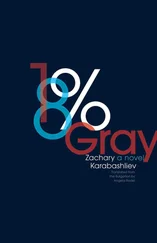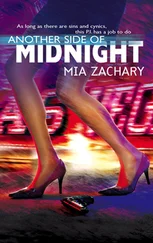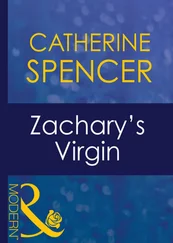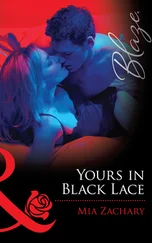“Maybe put the sunglasses on. The big ones. The green ones.”
“You want me to lie down?”
“Yes, lie down.”
“Bedroom scenes. I usually get paid for this kind of thing.”
“I’m here to make a film. I’m not here for that.”
He had seen it happen many times. Almost as soon as the camera was on its tripod, a person like Bruce Byron would start to imagine himself as the Star. At the same time, he would second-guess everything Anger said, because he’d never heard of him, and yet he still imagined that the film could somehow make him famous. It was a consequence of Anger not being famous enough himself, not being a Hollywood director who could bark commands instead of working through trickery and deceit.
“It’s not working out,” Eliot Gance said to Anger the next morning, standing just outside the stairwell that led up to the roof. The collar of his Cuban shirt was spread to reveal his veined throat and the top of his pink chest.
“I may go to Mexico,” he said. “Perhaps the Far East. Can you have your things cleared out by the end of this month?”
“Your life, Eliot. None of it makes any sense.”
“If she thinks she can just finish me off, she’ll find it’s not so easy. I’ve got different elements in play now. Different strategies.”
“I’ll speak to Beverly about this.”
“Stay out of it.”
“Let’s not forget that other people exist, Eliot. I have a film I’m trying to finish.”
“A film. That must be difficult. Will you stay in town, do you think, or will you go back to Europe?”
“I’ll speak to Beverly.”
“Leave her out of this.”
“We’ll see about this Mexico trip. The Far East.”
“Good-bye, Kenneth.”
“Wait a minute.”
“Good-bye.”
On the last night of filming, he took Byron to the bikers’ clubhouse, along with four cases of beer and a box of props. In some secret part of their minds, the bikers must have known what kind of person Anger was, but there was something about Byron — he was dressed all in black leather, like a mannequin or a doll — that let them know for sure. They staggered through the cases of beer and then they went wild, the radio on, forming conga lines, sloppy cancan routines that got more and more sexual, miming sodomy, their faces hidden by Halloween masks. They ended up jumping on one another’s backs, wrestling each other to the floor, gibbering like apes with their pants down. Byron had never met them before. His only instructions were to try to blend in. All he could do was stand off to the side, drinking beer. The refreshment table was knocked over on its side. People rode their motorcycles through the clubhouse. They had one of the younger kids on the ground and were squirting a bottle of mustard on him, his pants around his ankles, and though it was happening right in front of him, Byron just stood there by the wall, his hand in his pocket, so aloof that it was impossible to tell what he was thinking.
“That’s what you wanted, I guess,” he said when it was over. “A big ridiculous scene.”
They were in Anger’s rented station wagon. Byron was slouched back in his seat with a beer on his knee, his sunglasses on in the darkness.
“I thought you would get more involved,” said Anger.
“They were just kids. I was asking them about their bikes. I know more about bikes than they do.”
“What’s the matter?”
Byron stared ahead through the windshield, his face hidden in shadow.
“What?” Anger persisted.
“You want me to eat shit, that’s fine,” he said. “I’ve been eating shit my whole life.”
They were on their way to the next location. It was an abandoned church, its windows smashed, rainwater pooled on the plastic sheeting that covered the pews. It was there that Byron’s character would erupt in a last frenzy of rage, climbing up on the altar in a fit of desecration. It would be the best part of his performance. In the church it would be dark, and he would gesture and pose for almost an hour, acting out a sermon that in its senseless, dictatorial lunges would be a perfect ending for the film.
“Are you all right?” said Anger.
“I’m fine. Let’s just get it done.”
“We’ll do it your way this time. You tell me what you want to do and I’ll film it.”
“I want it to be real. I’m the only one putting anything real into this. Every time it gets serious, you start smirking, playing your games.”
After all his recent failures, Anger hardly expected that this would be the film to have so much success. Even as he raced to finish it, he didn’t foresee how confusing it would be to most of the audience that eventually came to see it, nor could he know that the word it invoked so strongly, “thanatomania,” would end up sounding like a diagnosis of the next six years. He called it Scorpio Rising . He didn’t realize that this little film he’d made with Bruce Byron would prefigure so much madness, nor did he anticipate that Byron would be so obtuse that he would entirely miss its mockery and believe that it flattered him, made him a star.
It ended with Byron marching off to the abandoned church, wearing a leather mask and an infantryman’s helmet. The sound of bikers followed him, the revving of their engines, the dream minions of some private army in his mind. With a sudden flourish, he turned and barked commands from the ruined altar. He paced like Hitler, raising his arms to the sky. Outside, the bikers massed in darkness, idling on wet roads, waiting for his signal. There was a crash — a pileup of bodies, flesh, machines — then the empty cry of sirens. The ambulances stood in the rain. Byron was all alone. It was getting light out. That was the year four Klansmen bombed a church in Alabama. The year a lone gunman shot JFK as he passed by in his open car. Always the television started as a white pinprick, gathering width until it filled the screen, bringing its different kinds of news. Day after day, the subway lights flickered with the unseen clues about death magic, thanatomania.
The state of California banned the film in 1964, and in doing so elevated it to an importance it might never have achieved if it had been simply left alone. After that, Anger kept bumping into different aspects of some newly distorted idea he had of who he was. Strangers sent him letters. They wrote to him as the pornographer, the fascist, the sadist, the necrophiliac. He was whatever they needed him to be. Handsome, intense boys would introduce themselves after screenings, and their interest in his every rambling word made him garrulous. He became a character, a talker, an opinionated fool.
At the film’s premiere in New York, Bruce Byron had shown up dressed in full biker regalia, down to a leather cap and a black leather jacket with a scorpion painted on the back. He stood by himself, a figure of embarrassment that nobody wanted to look at. Anger ignored him (he himself was never alone that night), but sometimes when he looked back on the scene he would imagine it through Byron’s eyes: the smugness, the utter conviction of his own centrality, the injustice of Anger being treated as the film’s star.
At night, an image would appear behind Anger’s closed eyes: a lithe boy with dark hair that fringed his forehead. He would arrive on a motorcycle in a fog of yellow light, making reckless circles in some vast hangar, his arms flexing as they wielded the silver handlebars. At top speed, he would mount a flight of red stairs that led to an altar adorned by a giant silver eagle. Airborne, he would crash through a pane of glass and tumble onto a concrete floor lit by klieg lights. His motorcycle would be bent and smoking. He would lie spread-eagled on the ground, his arms tattooed with anchors and skulls, blood in his hair. Then he would open his eyes and Anger would enter the boy’s mind, where there was nothing but images: a red curtain over still water, a blue gas flame reflected on chrome, a black sky pocked with green specks of light. It was now that the dreams of Lucifer began to proliferate.
Читать дальше
